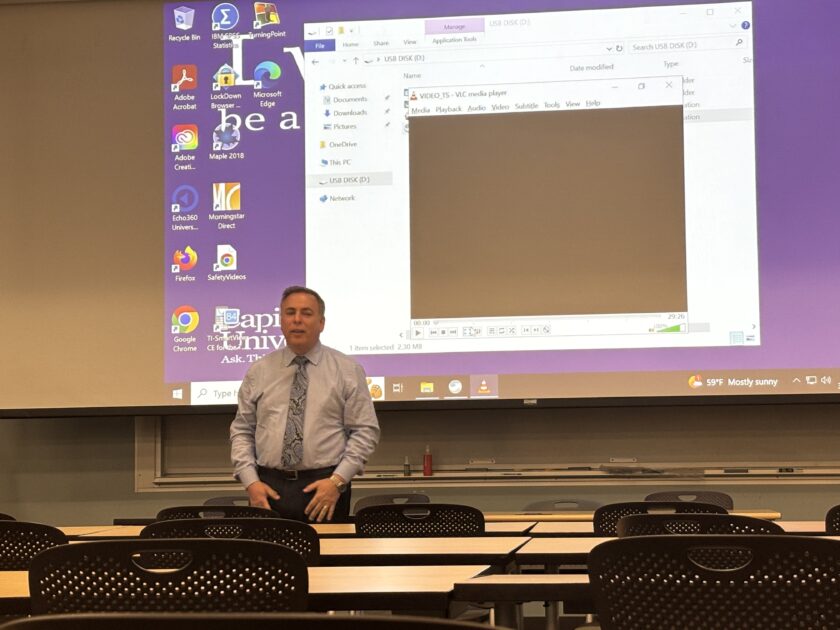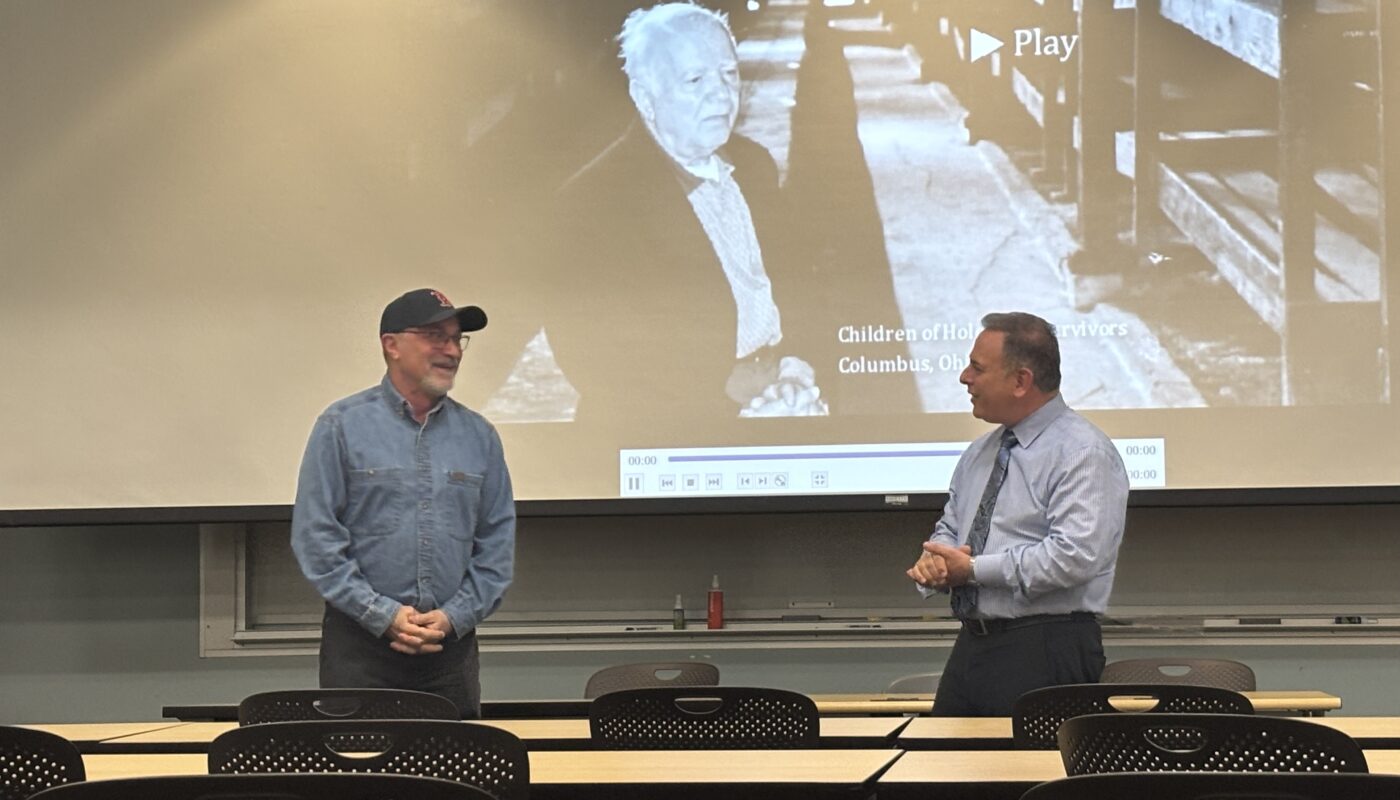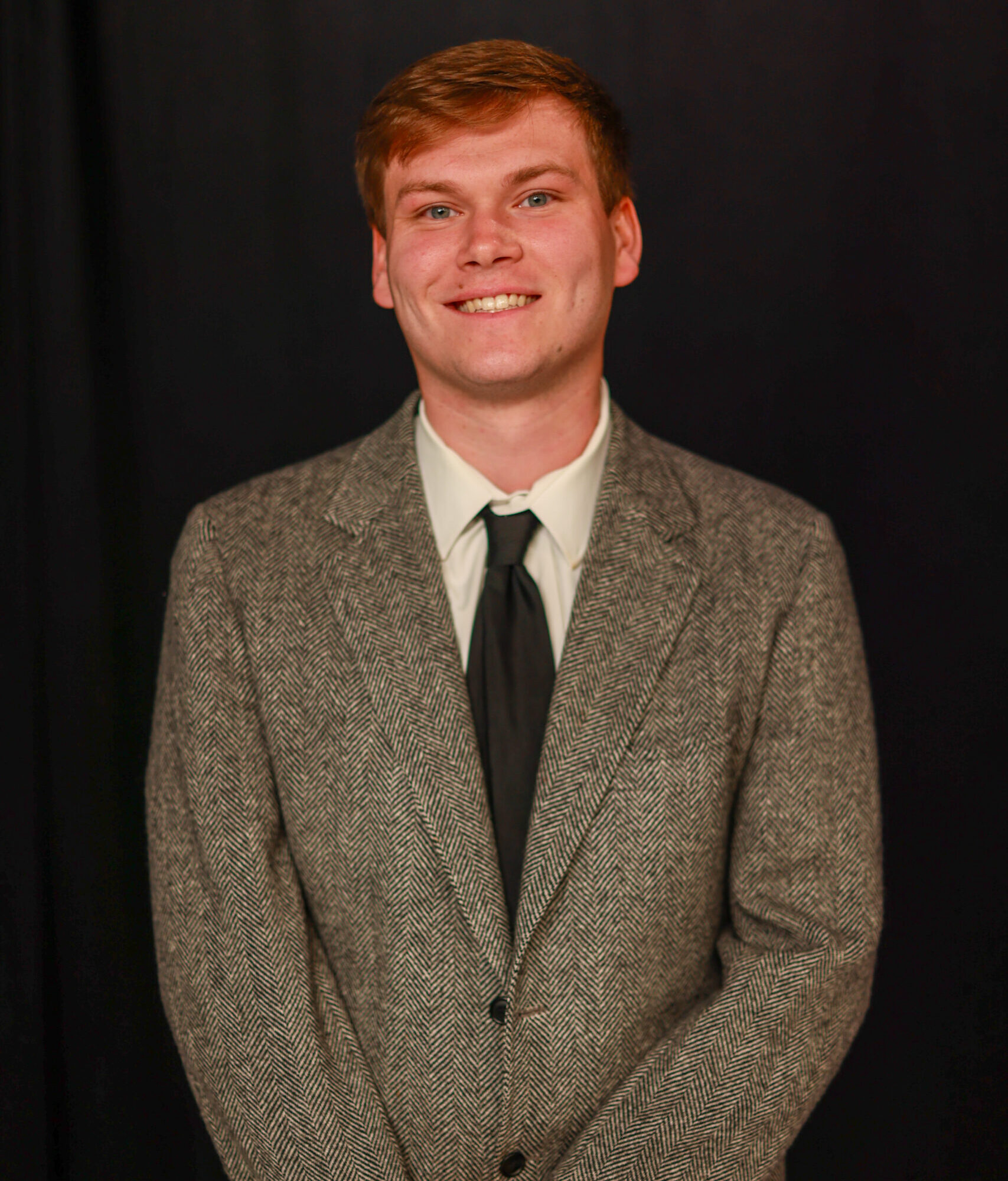Last Thursday, the university held a screening of “A Survivor’s Journey,” a short documentary about Murray Ebner, a Holocaust survivor. The screening was organized by Matthew Cook and Meghan Crawford.

The film was directed by Sam Nahem, who made an appearance at the event. The screening was followed by a Q&A with Nahem and Mark Ebner, the son of the film’s subject. This was the penultimate event of the university’s “Anne Frank Project,” which began with the Anne Frank exhibit in the Blackmore Library at the beginning of February.
Mark Ebner prefaced the film by describing his adolescence, where he noticed that Murray was “not like other dads.” Mark would ask his father about where he went to high school or what he did for fun, and Murray would answer that he “didn’t have any of that.”
This led Mark to wonder about what it was like for Murray to grow up in the Holocaust, not just during it.
“For years, I wanted my dad to go back and retrace his footsteps and show me where he went,” Mark said. His father was uninterested at first, but Mark eventually convinced him, and this experience is what the film follows.
“I really felt kind of guilty because he had healed after all these years, and I ripped off the scab,” Mark said, “but I really needed to see. This amazing story can’t be lost.”
The beginning of the film showed footage of Murray speaking at Bexley High School, which was one of the many locations across the country at which Murray spoke about his experience in the Holocaust.
“What kept me going was hope,” Murray said.
This statement was then followed by Murray telling his experience over footage of him and his family revisiting the several camps he was placed in, as well as archival footage of the horrors of the Holocaust. It was Murray’s first time returning to the camps after almost 60 years.

Murray’s entire family was murdered in WWII when he was thirteen. Six million Jewish people were killed in the Holocaust, which is “about six Ohio State University football stadiums,” Mark compared the numbers to.
“The Jewish people were actually signaled out,” Murray said in the film. “They were deprived of food; I could not go to school.” The deprivation of food forced them to steal food from wherever they could.
The film’s narrator gave the statistic that 10% of Poland was Jewish, and “almost all were murdered.”
One night, something told Murray not to sleep in his usual bunk; soldiers came in and asked for him, and people thought he was in the bathroom. Ten people were killed, and one of those could’ve been Murray had he slept in his usual bunk. Murray’s account of this event demonstrated how easy it was to be killed unexpectedly in the camps.
What seemed to be the film’s climax was Murray’s return to Auschwitz.
“The last time [Murray] Ebner was at Auschwitz,” the film’s narrator said, “he arrived in a train’s cattle car.”
Murray said the blue and white uniforms they were required to wear were unlike anything he’d ever seen before. The number they gave him was B2992, and that was his identity to the Nazis. Murray recalls trying to sleep in either the middle or top bunk because it felt safer.
Murray and his family walked all over the remnants of Auschwitz, where they could still see the gas chambers and crematoria. Auschwitz is considered to be the largest cemetery in the world.
Murray eventually escaped at the age of 16 when the Nazis were transporting prisoners from Poland to Germany. He found second cousins at his grandpa’s farm, and he was safe from that moment on. He was placed in several orphanages in Europe.
A cousin found Murray in an orphanage and told him he was going to America, and he wanted Murray to come with him, so they both went. Murray was put into another orphanage in New York, where he saw a phone book for the first time. He searched through the phone book, trying to find family in New York.
He wrote a letter to someone with the surname Ebner, who responded, telling Murray that they were not his family but knew of him and knew that he had family in Springfield, Ohio.
Once Murray moved to Ohio, he was drafted and fought for two years in the Korean War.
“It’s the survivors who speak for the dead,” said the narrator. Murray promised to never forget what happened during the Holocaust.
Murray Ebner died in 2015, but his family continues to tell his story.


